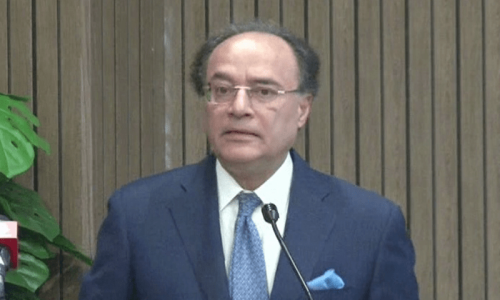ISLAMABAD: Climate-related disasters have caused economic losses exceeding $4.3 trillion and claimed the lives of over two million people globally between 1970 and 2021, according to the UN agency World Meteorological Organisation (WMO).
In a statement on the occasion of World Meteorological Day, observed on March 23, WMO Secretary-General Prof Celeste Saulo said economic costs continue to soar, but the death toll is falling. “We are better at saving lives than ever before,” he said.
The WMO says the world just witnessed the hottest 10 years on record, and 2024 is likely to be the first calendar year to temporarily hit 1.5°C above the pre-industrial era.
“Unfortunately, it will not be the last. This is more than just a statistic. Every fraction of a degree matters to our lives and our livelihoods. Extreme weather and climate impacts are becoming more intense. We are seeing more frequent and intense heatwaves, more devastating storms and floods, more rapidly intensifying tropical cyclones,” it said.
The theme of this year’s World Meteorological Day is, therefore, “Closing the Early Warnings Gap Together”. The day is observed on March 23 each year to showcase the essential contribution of national meteorological and hydrological services to society and to building a safer, more resilient world.
“At the halfway point of ‘Early Warnings for All’, we are proud to report progress, and as of 2024, 108 countries report having some capacity for multi-hazard early warning systems. This is more than double the 52 countries in 2015. But we need to go further, and we need to go faster,” WMO said.
The WMO emphasises that governments should innovate together to scale up technologies, stand together to foster collaboration in countries, and invest together, mobilise and share resources. “The time is now. By acting now, investing and innovating together, we can fulfil the promise of ‘Early Warning for All’,” it said.
The organisation says no country can tackle these challenges alone. Forecasting hazards requires international cooperation, with data shared across regions and transformed into actionable warnings by National Meteorological and Hydrological Services (NMHSs). However, warnings must go beyond forecasts — they must be clear, accessible, and linked to early action so that people and communities know how to respond when hazards approach.
The United Nations’ ‘Early Warnings for All’ initiative aims for everyone, everywhere to be protected by an alert system by 2027. The world must come together and urgently scale up action and investment to realise this goal.
On the occasion, UN Secretary-General Antonio Guterres said, “We need high-level political support for the Initiative within countries, a boost in technology support, greater collaboration between governments, businesses and communities, and a major effort to scale up finance.
Increasing the lending capacity of the Multilateral Development Banks is key. ‘The Pact for the Future’ agreed last year made important strides forward; it must be delivered in full.“
WMO’s State of the Global Climate report confirmed that 2024 was likely the first calendar year to be more than 1.5°C above the pre-industrial era. This is the warmest year in the 175-year observational record.
The report showed that atmospheric concentrations of carbon dioxide are at the highest levels in the last 800,000 years. Globally, each of the past 10 years were individually the 10 warmest years on record. Each of the past eight years has set a new record for ocean heat content.
The 18 lowest Arctic sea-ice extents on record were all in the past 18 years. The three lowest Antarctic ice extents were in the past three years. The largest three-year loss of glacier mass on record occurred in the past three years. The rate of sea level rise has doubled since satellite measurements began.
The record global temperatures seen in 2023 and broken in 2024 were mainly due to the ongoing rise in greenhouse gas emissions, coupled with a shift from a cooling La Nina to a warming El Nino event. Several other factors may have contributed to the unexpectedly unusual temperature jumps, including changes in the solar cycle, a massive volcanic eruption and a decrease in cooling aerosols, according to the report.
Published in Dawn, March 24th, 2025
















































